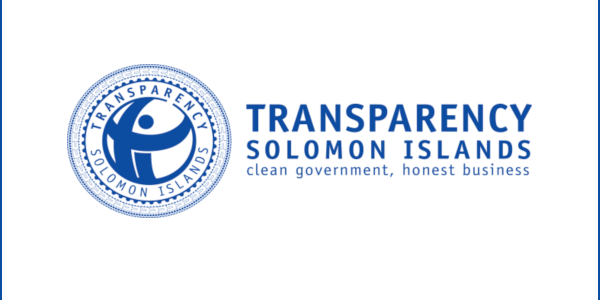As the country approaches the dates when it will host the 54th Pacific Islands Forum Leaders meeting, Transparency Solomon Islands (TSI) welcomes the decision by Pacific leaders to defer the Post-Forum Dialogue at the 54th Pacific Islands Forum Leaders Meeting
Transparency Solomon Islands (TSI) commends Prime Minister Manele and the Pacific leaders for their collective decision and bold decision to defer the Pacific Islands Forum (PIF) Post-Forum Dialogue to 2026.
This decision reflects a strong commitment by leaders to regionalism, enabling leaders to focus on the priorities and needs of Pacific people without external pressures.
It gives them time and space to deliberate on emerging issues, and other issues of importances impacting on their people, their livelihoods, environment, and resources.
More importantly it gives Pacific Leaders the time and space to review the implementation of the Blue Pacific Strategy 2025 for realizing the vision of the Blue Pacific Continent – A resilient Pacific Region of peace, harmony, security, social inclusion and prosperity that ensures Pacific peoples can lead a free, healthy and productive lives.
The 2050 Strategy for the Blue Pacific Continent, the guiding document of the PIF, states that partnerships with international stakeholders should be “genuine and durable” and grounded in “mutual trust, transparency and accountability” (p.13). TSI calls on key post dialogue and development partners to respect the decisions made by Pacific leaders and to align their support with the priorities identified by the region for the realization of Blue Pacific Continent Vision.
Having observed what happens at this meeting where more time is given to those with money than to the voices of their people, Transparency Solomon Islands believes that the deferment provides leaders with the time and space to strengthen their unity, and concentrate on matters that truly affect the region and countries of the region.
It is also time that PIF Leaders review partnerships, while reaffirming that all development partners should be treated the same and asked the same questions and treated equally.
It is important that leaders make clear that no single country should expect to be afforded special status or influence at the regional level.
Regionalism is the foundation of the Blue Pacific Strategy. Yet, it faces ever-increasing threats from the heightened geopolitical competition in our region.
The events in the 53rd PIF in Tonga last year, where attempts were made to influence the wording of the Forum communiqué, are a reminder of why leaders need time and space to deliberate on their own terms.
It is because of this global competition for influence that leaders must remain focused on the real needs of their people – the very people who entrusted them with leadership.
Furthermore, this pause in the Post-Forum Dialogue offers a valuable opportunity to address critical intra-regional issues, including peace and security, climate change and rising sea levels, and sustainable resource management, using approaches grounded in Pacific values and the “Pacific Way”.
Transparency Solomon Islands acknowledges and commend leaders for providing at least one hour of direct engagement with civil society organizations (CSOs) during the Forum. This dialogue is vital for ensuring that communities’ voices are heard, and that discussions and solutions reflect local realities. It is also a chance to assess the genuineness of development partners and to improve engagement mechanisms, including through the ongoing regional architecture review.
TSI strongly encourages leaders to consider including CSO participation in the regional architecture review, as this will help ensure that the people are brought along in the journey toward implementing the Blue Pacific Strategy.
Moreover, each year, development partners announce and commit to substantial funding. However, such funding is frequently tied to donor-specified projects or conditions, which can limit governments’ ability to use it in ways that best address local priorities. Access to financing that aligns with Pacific priorities is therefore essential for delivering on the 2050 Strategy.
TSI urges leaders to use this deferment period to explore innovative financing mechanisms that are accessible and practical for the region for presentation to partners. Development partners also have a role to play and should be responsive, listening to the solutions proposed and agreed upon by our leaders.
TSI also emphasizes the need for leaders to put strong mechanisms in place to uphold good governance, transparency, and accountability, as corruption poses a direct threat to achieving the Blue Pacific Vision.
‘In this regard TSI calls for the inclusion of Anti- Corruption Organisations and Agencies both of the Public Sector and Civil Society Sector to participate fully in any review of the Teieniwa Vision.
The successful implementation of 2050 Strategy requires integrity of political leadership both at the country and regional level and much more attention must be given to the integrity of Electoral Processes and citizens being aware of the important part they play in the Integrity of any Political Leadership.
Corruption threatens good governance and the Political Commitment needed for the successful implementation of 2050 Strategy both at the regional and country level.
TSI applauds this decision as a sign that our leaders are committed to advancing the region on its own terms. We encourage them to continue making bold choices that reflect the Pacific peoples’ priorities.
– TSI









